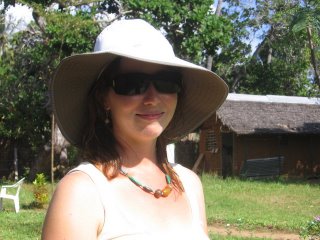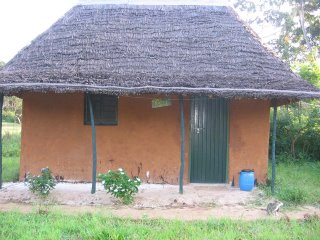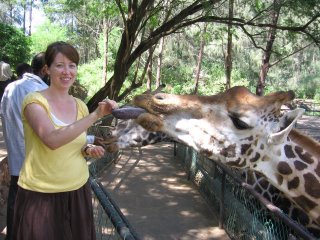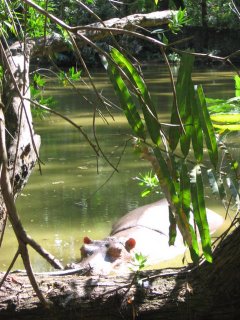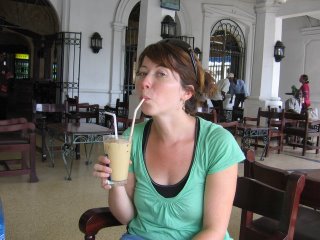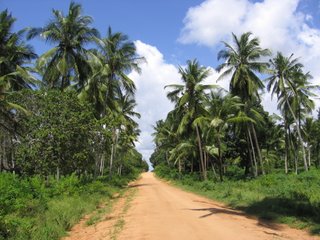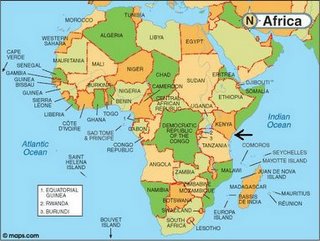I didn't realize that I had quite so many preconceptions about Africa until I stepped off the plane in Mombasa. I looked around me and expected to see…bushes? Tribesmen? Stripes on everything? Africa, Kenya just sounds so exotic that the biggest shock upon arriving was just how normal everything seems.
Megan and I were met at the airport by an EAC representative and we spent the night (it was 12:30 AM by the time we arrived) at their apartment in the Mombasa suburbs. The next morning, after breakfast and instant coffee, we left for Takaungu, the village that will be our home for the next month. We drove along a busy dirt road, the driver swerving to avoid potholes and attempt to run over a snake on the road (he explained that all Kenyans should try to kill snakes to prevent the snakes from killing Kenyans). We drove past sisal plantations and stands of trees. While the part of Kenya I flew over on route to Nairobi was very brown, near Mombasa everything is green. There is plant life everywhere – mango trees, palms, banana bushes, cashew trees and a million other plants I can't name. As we drove, we passed Kenyans pulling huge loads on makeshift wheelbarrows, balancing large packages on their heads, and lots of kids playing by the sides of the road.
A couple of hours later, we arrived at our new home and discovered that instead of sleeping in a hut for the next week, we'll get to stay at the EAC office which is actually a very large house in the middle of town. Much nicer than any place I've stayed on my travels before, there are four bedrooms, four baths, two kitchens, a large living room, the office itself, and best of all, an amazing roof looking over the village. After months of psyching myself up for really roughing it in the wild jungles of Africa, it was rather surprising to find myself in a place with lights and a spot to plug in my iPod. There's running water and a refrigerator and a cook to prepare our meals.
We met several of the other volunteers and had a tour of the Vutakaka Center (more on that later) and then orientation. I have to say, I'm extremely impressed by the EAC's organization. In one day, Tricia, the volunteer coordinator, gave us an overview of local culture and history, described the evolution and goals of EAC, hinted at some possible projects, explained the systems for food and laundry, told us the rules by which we need to abide, and taught us the Swahili greetings that we can't get through the village without, and somehow managed to make us feel welcome, excited, safe, and relaxed.
